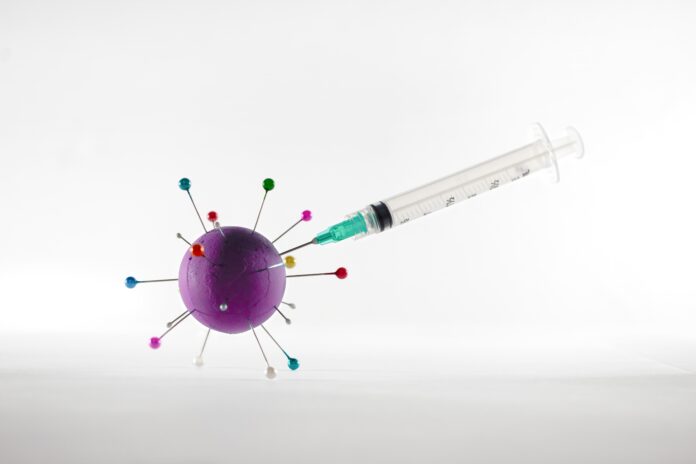
Bo Tefu | California Black Media
On Sunday, Gov. Newsom visited Faithful Central Bible Church in Inglewood, a predominantly Black congregation that serves its local community with a number of outreach ministries. The church is hosting a mobile COVID-19 vaccination site.
“We’re not doing enough. We need to do significantly more programs like this,” said Gov. Newsom at the Faithful Central Bible Church. “We’ve got to get people back to work. We’ve got to get people back into church.” The California Department of Public Health also announced Sunday it has administered 7.3 million COVID-19 vaccines.
Last week, Gov. Newsom announced several steps the state is taking to provide much-needed financial relief to people in the state who are facing financial hardships due to the pandemic.
California residents from households with income below $30,000 will receive a one-time $600 stimulus check to reduce economic hardships related to the pandemic, the governor’s office says. According to Newsom, the state reached a federal deal worth $9.5 billion for COVID-19 relief funds. The money is expected to help individuals and families, college students, as well as local business owners. More than $2 billion will be allocated to small businesses impacted by the pandemic, including funding for the tax-deductible Paycheck Protection Plan.
The federal funds also include over $400 million for critical childcare resources. The state allotted $100 million in emergency relief funds to support community colleges. An additional $6 million will support college supplemental food programs.
Gov. Newsom said support from lawmakers to provide relief funds is what Californians need after nearly a year of attempting to fight the pandemic and recover.
“These actions are critical for millions of Californians who embody the resilience of the California spirit,” he said.
Toni Atkins (D-San Diego), California Senate President pro Tempore, said the emergency relief funds echo the state’s long-term plans to promote equity for communities most affected by the pandemic.
“People are having a hard time making ends meet,” Atkins said. “People are hungry and hurting, and businesses our communities have loved for decades are at risk of closing their doors. We are at a critical moment, and I’m proud we were able to come together to get Californians some needed relief.”
Racial Equity, Vaccinations and Overcoming COVID-19
California and the Biden-Harris Administration opened two new community-based vaccination sites in Oakland and Los Angeles, among the first in the nation, as part of a larger initiative to promote equity in areas across the country where Black and Brown people live.
The pilot sites co-run by the Federal Emergency Management Agency (FEMA), the state of California and the Department of Defense administered vaccinations to residents Tuesday morning at the Oakland-Alameda Coliseum and California State University Los Angeles.
Bob Fenton, acting FEMA Administrator said, “these sites demonstrate how we can provide more opportunities for vaccination to the hardest hit communities and ensure everyone who wants a vaccine can get one.”
Gen. Glen VanHerck, Commander of U.S. Northern Command, said military medical providers have supported various hospitals across California.
“Defense Secretary Austin has made clear we must move further and faster to eradicate the devastating effects of the coronavirus,” said VanHerck.
The governor’s office also partnered with more than 100 community organizations, “to safely, swiftly, and equitably vaccinate all Californians,” said state officials.
The state awarded an additional $17.3 million to various community-based organizations for outreach and efforts to alleviate racial disparities in the healthcare system.
The selected organizations offer a variety of critical services, resources, and information to help communities disproportionately affected by COVID-19. The community-based organizations cater to diverse populations, including African Americans and other minorities, LGBTQ individuals, as well as faith-based groups.
Gov. Newsom said systemic inequalities in the government and healthcare systems have put many Californians at a higher risk of COVID-19. The state plans to use the community-outreach model of the census to help underserved communities.
“We must reach these disproportionately affected Californians through trusted messengers and community-based partners to minimize the spread of the virus, overcome vaccine hesitancy and save lives,” said Newsom.
The community partnerships also aim to provide workplace protection and public health guidance for people working in sectors hit the hardest by the pandemic as part of its outreach.
In California, the majority of low-wage essential workers are Black and Brown individuals. More than 80 % of low-wage essential workers perform their duties in close proximity to others reports the University of California Berkeley Labor Center.
In the report, co-authors and researchers Adriana Ramos-Yamamoto and Monica Davalos said it is time for California policymakers, “to declare racism a public health crisis,” emphasizing that the pandemic has hit Black and Brown people the hardest.
The coronavirus exposed that the damaging effects of racism in California are “not by accident, but by design,” the report stated, citing unequal access to health care, unemployment, housing and education.
“This devastation must be the catalyst for California policymakers to acknowledge that racism has caused lasting and negative impacts on communities of color,” the report pointed out.


